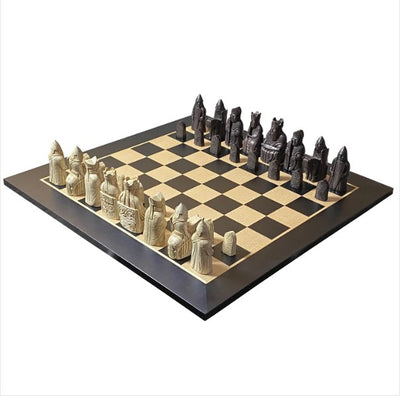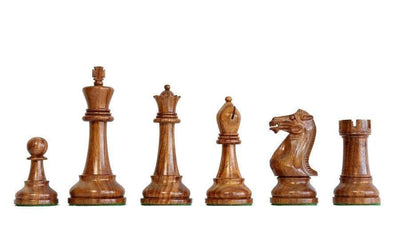The Captivating Journey of Chess: From Ancient Origins to Modern Mastery
The game of chess is more than just a pastime; it encapsulates centuries of culture, strategy, and intellect. From its ancient origins in India to its establishment as a modern global phenomenon, chess has continually evolved. This blog post takes you on a detailed journey through the history of chess, exploring its roots, transformations over time, and contemporary significance. Join us as we delve into the intricate world of this timeless game.
The Ancient Beginnings: Chaturanga
The game of chess traces its origins back to ancient India, where it was known as Chaturanga. Dating as far back as the 6th century CE, Chaturanga was played on an 8x8 board and represented the four divisions of the military: infantry, cavalry, elephants, and chariots. These components laid the foundation for the modern chess pieces we recognize today.
Chaturanga’s Expansion to Persia
As trade routes expanded and cultures mingled, Chaturanga made its way to Persia, where it was known as Shāh Māt. The Persian phrase “Shah Mat” translates to “the king is dead,” signaling the objective of the game. It was in Persia that the gameplay rules evolved, leading to an increasing emphasis on strategy and tactics.
The Islamic Golden Age: Chess Flourishes
With the advent of the Islamic Golden Age, chess experienced a renaissance. This period saw significant advancements in chess strategy and literature. Scholars such as Al-Ruhawi and Al-Adli wrote extensive texts on chess strategies, offering players valuable insights into effective gameplay.
The Cultural Significance of Chess in the Islamic World
Chess became more than just a game; it was regarded as a supremely intellectual pursuit. In the courts of various Islamic rulers, it was often played by royalty and noble classes. Tournaments were organized, and skilled players garnered immense respect and admiration.
The Journey to Europe: Chess’s Arrival in the West
In the 9th century, armies and merchants brought chess to Europe. The game quickly gained popularity among European nobility. By the 15th century, the rules of chess underwent significant modifications, leading to the creation of “modern chess”. The introduction of the powerful queen and the faster-paced pawn promotion changed strategies, making games more dynamic and complex.
Chess During the Renaissance
As Europe entered the Renaissance period, chess continued to thrive. The game became a symbol of intellect and strategic thinking, imbued with the values of the time: scientific reasoning and critical thought. High-profile matches were documented, and treatises on chess strategies became more prevalent.
The 19th Century: The Birth of Competitive Chess
The 19th century marked the beginning of organized chess tournaments, igniting a fervent competitive spirit. The first official World Chess Championship took place in 1886, pitting American champion Wilhelm Steinitz against German challenger Johannes Zukertort. This period also saw the emergence of chess clubs, which created communities of enthusiasts and strategists alike.
Key Figures of the 19th Century
One of the most notable figures of this era was Paul Morphy, an American chess prodigy whose brilliance astonished players worldwide. Known as the "Pride of America," Morphy demonstrated strategic mastery that is still revered by players today. Others followed, such as Wilhelm Steinitz and Emanuel Lasker, who took chess to unprecedented levels of complexity.
The 20th Century: The Chess Revolution
With the dawn of the 20th century, chess faced both challenges and opportunities. The world wars interrupted the chess community but also produced remarkable resilience. The tournament circuit expanded, leading to an explosion of talent and competitive play.
The Rise of Bobby Fischer
One of the most iconic figures in chess history is Bobby Fischer. His legendary match against Boris Spassky in the 1972 World Championship transcended the game itself, becoming a cultural phenomenon amidst the Cold War tensions. Fischer’s innovative strategies and refusal to conform to conventional styles revolutionized chess, inspiring generations of players.
The Digital Age: Chess Goes Online
As technology advanced into the late 20th and early 21st centuries, chess transitioned into a digital format. Online chess platforms proliferated, making the game accessible to millions worldwide. Whether players were novices or grandmasters, the internet provided an avenue for practice, competition, and learning.
Popular Online Chess Platforms
- Chess.com
- LiChess.org
- Internet Chess Club
These platforms have created a vibrant online community, allowing players to connect, compete, and learn from one another seamlessly. Events such as online tournaments and simultaneous exhibitions have made it easier for players to engage with the game.
Chess in Popular Culture
Chess has permeated popular culture beyond just being a game. Films, literature, and art have showcased its allure. For example, the hit Netflix series “The Queen’s Gambit” catapulted a renewed interest in chess, inspiring viewers to explore its intricacies.
The Psychological Depth of Chess
The strategic complexity and psychological intensity of chess have led researchers to explore its impact on the mind. Studies suggest that playing chess can enhance cognitive skills like problem-solving, critical thinking, and creativity. Additionally, the game fosters patience and resilience, allowing players to develop a strategic mindset.
The Future of Chess
The future of chess looks incredibly bright. With the ongoing integration of technology, artificial intelligence (AI) is now playing a vital role in chess analysis and training. AI opponents provide players with the opportunity to practice and refine their skills, while also offering an element of unpredictability.
Emerging Trends in Chess
- Virtual Reality Chess
- Chess Streaming and Content Creation
- Increased Female Participation in Competitive Chess
These trends signify a shift in how chess is viewed and played, attracting younger generations and diversifying the community. Tournaments are more inclusive, and the rise of female players and champions is paving the way for a more diversified and multifaceted chess landscape.
Chess: A Timeless Challenge
As we look back on the rich history of chess, it is clear that it represents more than just a game. From its ancient origins in the royal courts of India to today’s online platforms, chess has proven itself to be a timeless pursuit that continues to challenge and inspire. The evolution of chess reflects the broader changes in society, culture, and technology, illustrating the way a simple game can capture the human imagination across generations.
As chess enthusiasts, we can only anticipate the future paths this game will take, sparking curiosity, fostering connections, and encouraging strategic thinking worldwide. Whether you are a seasoned player, a novice, or someone intrigued by the world of chess, the journey is ongoing, and the possibilities are truly endless!






